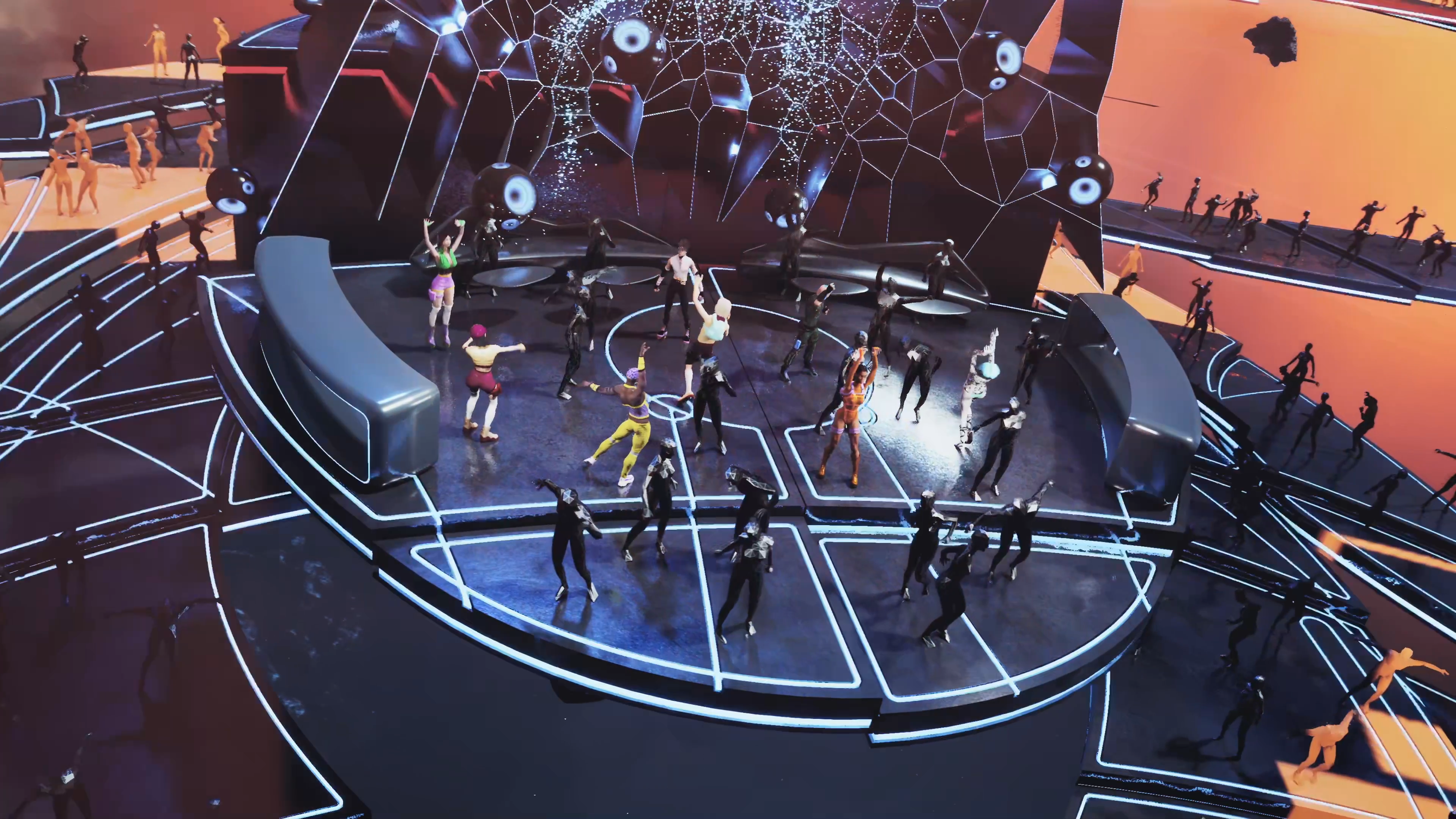A generational shift in entertainment is upon us. And perhaps that’s nowhere more obvious than in the music industry. If confirmation needs be, the millions of fans flocking to a virtual stage over the last two years to attend performances by some of the world’s biggest stars should be indication enough that the future is about to look very different from today.
The lineup of performers embracing the metaverse as a new medium of expression and music-making is nothing short of impressive; Ariana Grande embarked on a wildly successful tour on Fortnite, following in the footsteps of Travis Scott’s historic concert on the same platform and another record-setting performance by Marshmello. Together, they managed to attract a whopping 133 million viewers.
This is hardly a one-off either; music events across other metaverse-like platforms continue pulling big numbers, helping kickstart a much-deserved conversation about the relationship between musical artistry and emerging technology, including virtual and augmented reality.

But all of this is nothing but a taster of bigger things brewing.
Artificial intelligence is now helping introduce a new breed of virtual artists that can command the attention of virtual audiences with the prowess of a human counterpart.
The first forays of AI DJs into the depths of the metaverse place generative music at the center of a new way of conceptualizing music where the barriers to imagination and sound creation are being challenged like never before.
As one of the most intriguing upcoming metaverses, Sensorium Galaxy is lifting the veil on the extensive capabilities enabled by this technology, as AI avatars churn out supercharged beats in an otherworldly dance floor as part of the world’s first metaverse music streaming offering.
And more than just putting together futuristic concerts, these AI musicians can bridge the gap between artificial and humans with various AI-powered social skills that allow them to communicate with fans, recall prior interactions, and establish genuine relationships. This defining trait sets Sensorium apart from other metaverse settings.
With this in mind, the starting point has never been the replacement of real-world concerts and all the heart-racing moments they no doubt create, but rather complementing that with tools and experiences that can only originate from using VR, AR, and AI technology.
We see the transition from real-life settings to virtual performances to full-fledged metaverse concerts unfolding at dizzying speed.
Take an artist like David Guetta, create a photorealistic avatar that can translate the smallest quirk into a compelling virtual reality presence, and bring that all to an AAA metaverse stage where the laws of gravity and human construction no longer apply.
The outcome is art being entirely made in uncharted territory, open for artists and fans to explore and interpret, each from a different viewpoint. In some instances, artists and music fans can even converge and experience a performance from the same angle, as Sensorium Galaxy users will soon find out.
Metaverse music is also about legacy. Creating work that endures for generations is every great artist’s dream, and the metaverse is emerging as the platform where creative immortality can finally be achieved.
This is playing out within the premise of virtual lifespan being extended beyond the “expiration date” of an artist and art itself in a way that challenges limitations across more than just creative or conceptual borders. Many have also defined the idea as digital immortality, which can be applied to a personal identity being preserved forever in a virtual environment, as much as any art form like music and entertainment. As such, future generations will have permanent access to a database of information that is both compelling and interactive and faithful to the foundations of a creator’s original creation and artistry.
But where will we go from here? The challenge is the medium’s novelty and fear of the unknown.
Some people’s experiences with VR and AR may have been clunky. Still, both the hardware and software keep evolving every day, content is becoming increasingly sophisticated and the tools for improved connectivity are opening new avenues for virtual artists to create with.
And as fans start recognizing the benefit of embracing a multisensory way of enjoying what they like the most, virtual artists are bound to become the bridge to immersive, memorable, and emotionally charged musical experiences.
Ultimately, the music landscape is being completely redrawn, and there’s no turning back from that.
—–
Sasha Tityanko is Art Director and Deputy CEO for Art and Marketing at Sensorium Galaxy. With over 15 years of experience in the international entertainment industry, Sasha is behind the marvelous virtual creations and product marketing campaigns of Sensorium Galaxy — a next-generation social metaverse developed in collaboration with the world’s top artists, producers, and media companies.
With a proven record for representing some of top artists, including leading pop singer, Eurovision awarded Dima Bilan and the internationally renowned band t.A.T.u., Sasha plays a vital role in finding the right content partners and negotiating their participation at Sensorium Galaxy. She also coordinates creative efforts with international agencies such as Hi Scream and The Night League, Ibiza, closely involved in the development of virtual worlds PRISM and MOTION.
Before life at Sensorium Corporation, Sasha worked for well-known record labels EMI Music and Interscope / Universal Music to bring chart-topping artists from the United States, United Kingdom, Japan, and Latin America.

If you found this article to be informative, you can explore more current Digital Twin news here exclusives, interviews, and podcasts.













